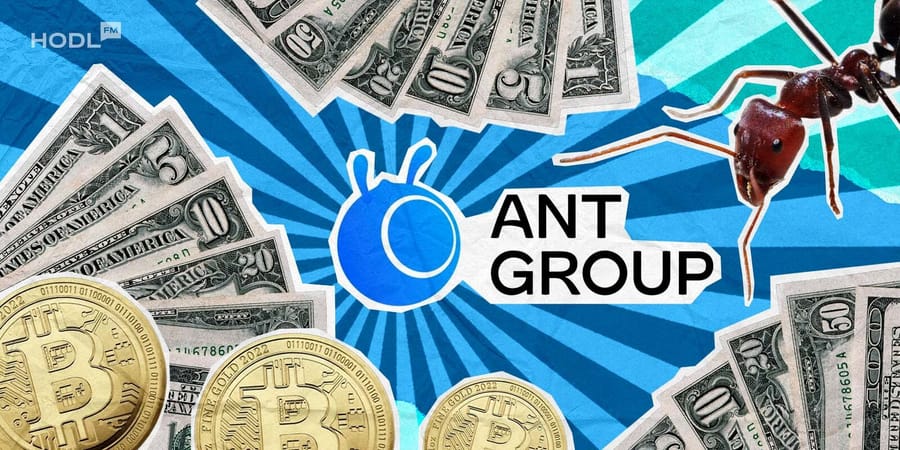Ant Digital Technologies, the blockchain affiliate of Ant Group, is advancing efforts to tokenize over 60 billion yuan ($8.4 billion) in energy infrastructure on its AntChain network, according to a Bloomberg report citing people familiar with the matter.
Energy devices connected to AntChain
The firm has reportedly begun tracking power output and outage data from 15 million energy devices across China, including solar panels and wind turbines, and uploading this operational data to AntChain. By moving physical‑world performance metrics onchain, Ant aims to provide a transparent foundation for financing and verification.
Financing clean energy projects
Sources told Bloomberg the strategy has already moved beyond pilot testing. Asset tokenization through AntChain has been used to raise approximately 300 million yuan ($42 million) for three clean energy projects.
Ant Digital’s blockchain financing is not entirely new. Past deals included:
- August 2024: Around 100 million yuan ($14 million) raised for Longshine Technology Group, with more than 9,000 charging units connected to AntChain.
- December 2024: Over 200 million yuan ($28 million) for GCL Energy Technology by linking photovoltaic assets.
These initiatives build on Ant’s goal of making real‑world asset (RWA) tokenization a financing tool in traditional sectors like energy.
Future expansion and regulatory hurdles
The next step involves issuing tokens tied to energy assets. One option under review is listing such tokens on offshore decentralized exchanges, which could boost liquidity by opening these markets to a broader base of investors. However, sources emphasized such moves remain subject to regulatory clearance.
Ant Digital has already joined an HKMA (Hong Kong Monetary Authority) sandbox to explore tokenization pilots in regulated environments.
Stablecoin and global ambitions
Reports earlier this summer suggested Ant is also collaborating with Circle to integrate USDC stablecoin payments into its blockchain systems. At the same time, Ant International, the company’s global payments division, has been exploring cross‑border licensing frameworks related to stablecoins to support international settlement and corporate payments.
Tokenization sector context
RWA tokenization has gained momentum in 2025. Data from RWA.xyz shows onchain tokenized value has reached $28.4 billion, more than double the figure at the start of the year. The largest categories are private credit (≈55%) and US Treasurys (≈25%). Ethereum continues to dominate the space, securing more than 57% of market share for RWA issuance.
Why it matters
Asset tokenization allows sectors like energy to bypass traditional intermediaries, cutting costs and speeding up capital access. By issuing blockchain‑based tokens, companies can attract both institutional and retail investors who may otherwise struggle to access infrastructure financing opportunities.
Ant’s move to back energy projects and load industrial device data onchain represents one of the largest corporate tokenization initiatives to date, especially in the Chinese market.
Editorial perspective
Ant Group’s push to tokenize energy infrastructure highlights how blockchain is evolving from experimentation to industrial‑scale financing tools. Connecting 15 million devices and moving billions in yuan‑denominated assets onchain is not just a technical milestone, it’s a signal of intent that China’s biggest fintech is serious about bridging traditional infrastructure and digital finance.
At the same time, regulatory approval remains the pivotal variable. Without clear frameworks, these tokens risk being siloed into pilot projects rather than liquid investment vehicles. Our editorial belief is that projects like Ant’s will demonstrate the practicality of real‑world asset tokenization, but the true test will be regulatory support and whether capital markets actually adopt token-based models at scale.

Disclaimer: All materials on this site are for informational purposes only. None of the material should be interpreted as investment advice. Please note that despite the nature of much of the material created and hosted on this website, HODL FM is not a financial reference resource, and the opinions of authors and other contributors are their own and should not be taken as financial advice. If you require advice. HODL FM strongly recommends contacting a qualified industry professional.





